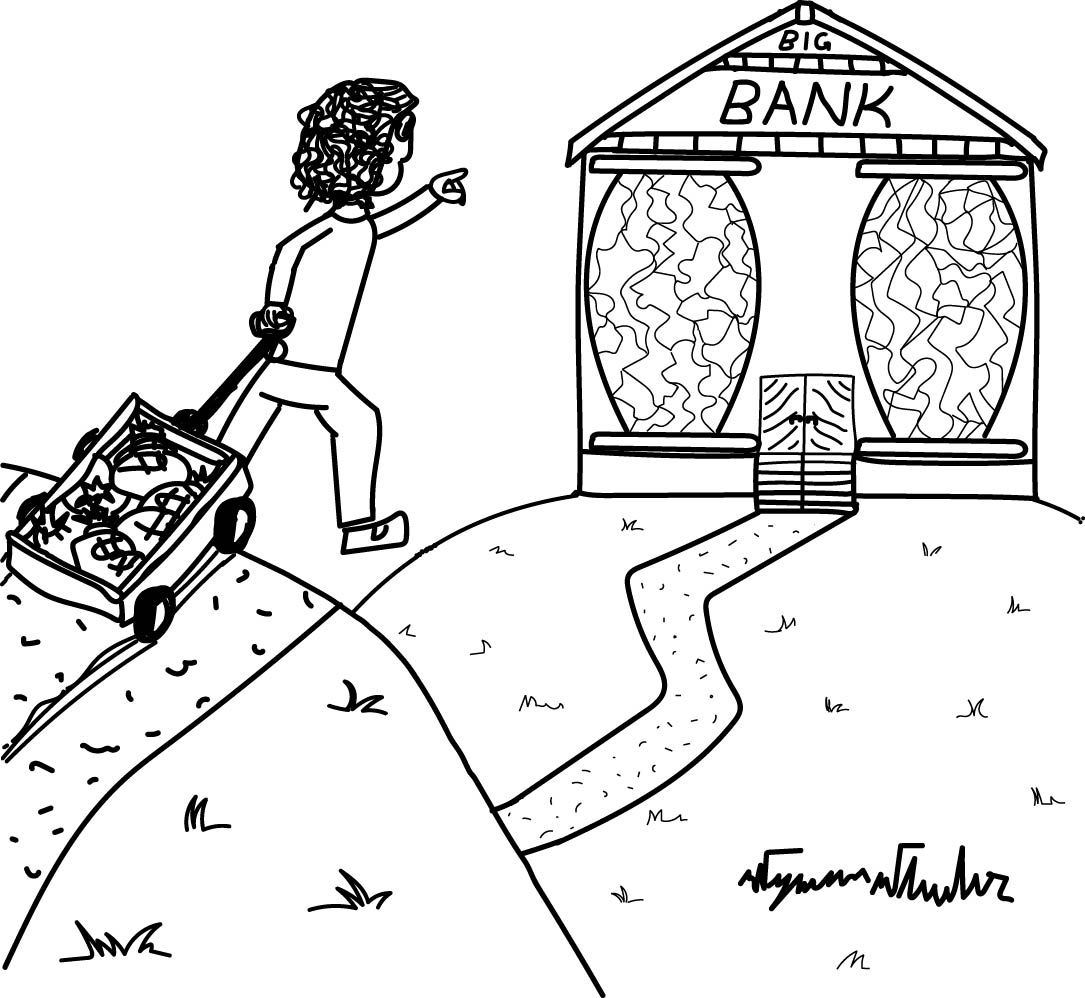How Much Cash Should You Keep in the Bank?

Money never sits still. You may think it does, such as when you deposit it into your checking account and you “know” the value of your account, or “money”, won’t do anything unless you make a deposit or withdraw (and perhaps get paid a cent or two of interest).
But what does a bank do with your money once you deposit it into your account? Let cash sit in their vault? Of course not. The bank puts our money to work by making loans. They always have some cash available to distribute to those who need it, but it’s a fraction of the total deposits they keep for customers. Like George Bailey said in It’s A Wonderful Life: “I don't have your money. It's in Tom's house... and Fred's house.”
If you, or your bank, don’t put your money to work, it’s going to lose value. Why? Because of the general rise in prices called inflation. If your bank pays you 0.5% interest but inflation is averaging 2.5%, your money in the bank is effectively losing 2.0% of value each year. Your balance doesn’t go down, but your purchasing power certainly does. And this relationship between bank interest rates and inflation has generally held steady the last 20 years. Your bank account, whether checking or savings, is typically going to pay you less than the US inflation rate.
So your money in the bank has an opportunity cost. Most people don’t know about, care about, or feel that opportunity cost, but it’s a real cost your family bears. Does that mean you shouldn’t keep any money in the bank? Of course not. Banks provide very valuable financial services and their presence makes daily economic transactions so much more fluid and convenient. However, you should have a thoughtful plan for how much money you do keep in your bank accounts.
A thoughtful plan about how much cash to keep in the bank is simple: First, how much do you typically spend in a month just to keep your life going? I would guess the average for my readers is about $4,000 per month. Your amount may be much more, and for many it’s less. That’s how much you should keep in your checking account. You may want to multiply your monthly spend by 2 to make sure you have a cushion. If you go over 2x you are now needlessly increasing your opportunity cost.
You’re thinking, “but what about emergencies and other savings!?” Of course, you’re right. But I don’t recommend keeping those in your checking account. Instead, I recommend keeping those balances in your savings. Why not commingle the amounts together? Because the human brain is busy and frail, and you don’t want to confuse it when you can avoid it.
A proper emergency savings will contain 3-6 months of your monthly expenses. If you average spending $4,000 per month, your emergency savings should be in the range of $12,000-$24,000. If you go under or above that range without justification, you’re asking for trouble.
Finally, on top of your emergency savings amount, you should build/keep enough money to cover all large expenses in the next 3-5 years. 3 years if you want to be aggressive, but 5 years if you’re more conservative. Why 3-5 years? Because any goal longer than that has the ability to ride out the volatility of longer term investments like real estate and the stock market.